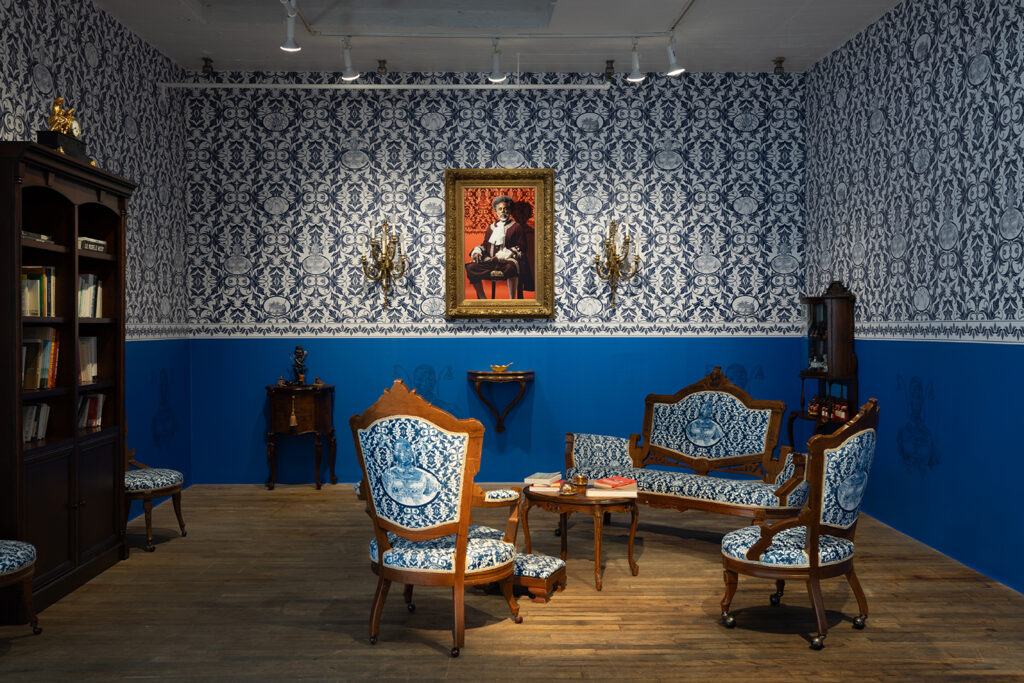Reception: Saturday, September 7, 2024, 3 p.m. to 5 p.m.
Eddy Firmin: Lawond
Curator: Tamar Tembeck
Text by Tamar Tembeck
Translated from French by Oana Avasilichioaei
Our histories are written in and on our bodies. Our identities are inseparable from our physical experiences, which are in turn shaped by genetic, cultural, and epigenetic heritages that we impart to the world again during our lifetimes.
In the work of Eddy Firmin, a Montreal artist originally from Guadeloupe, the question of embodiment is profoundly political. The body is a locus of contestation, but also of potential transformation. It is a site of both wisdom and powerlessness, a sentence or a source of liberation. Being in the world proves to be a constant negotiation between different beings-in-bodies, with their own baggage and experience, and their perspectives that are always necessarily partial. In such circumstances, what are the conditions that can lead to true encounters between beings?
Lawond invites the public to consider this question. “Lawond” refers to a circle of participants in Gwoka, a Guadeloupean practice that combines dance, song, storytelling and music, and is associated to a form of resistance to colonial violence.1 In keeping with the principle of improvisation, anyone in the audience can join the circle and share their experience with a sung or danced account.
The exhibition unfolds as a mechanism that allows for sharing, for coming together and for transformation, in an approach that is fundamentally decolonial. Assembling sculptural objects that represent the artist and members of his family, as well as images subverting stereotypes that stem from anti-Black visual culture, Lawond offers a space and time to metabolize our colonial heritages.
Visitors can choose to linger in the installation Tenir salon, for example, in order to engage in discussion and consult the works in the bookcase, while enjoying a coffee or some chocolate, products directly connected to the triangular trade. Others can drop off racist or xenophobic objects that come from their own collections, or deliver a personal account in the confessional, another participatory installation. The public’s offerings can be made in an entirely anonymous and voluntary manner. The idea is to create other possible outlets for the heritages we all possess, but don’t know what to do with or no longer wish to keep. How can we transform such histories without forgetting or denying them? What can we do with these unwanted heritages? Through this installation and the exhibition overall, Firmin offers a potentially cathartic outlet for these complicated legacies. Lawond invites us to take a step by willingly joining the circle, and to do so with an eye that is both critical and full of compassion.
Excerpt of the exhibition essay written for Lawond, presented at OBORO from September 16 to October 14, 2023.
1. See Eddy Firmin, “Méthode Bossale: Pour un imaginaire et une pratique visuelle décolonisée” (PhD diss., Université du Québec à Montréal, 2019).


